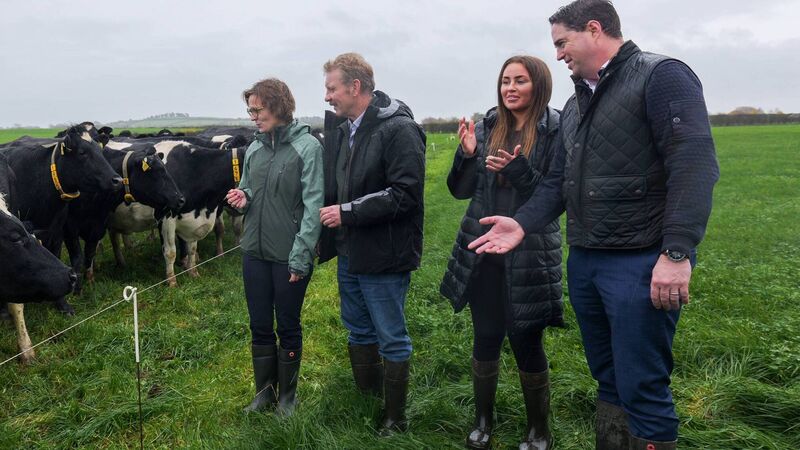Commissioner: Farmers’ environmental work ‘not in vain’ as derogation talks intensify

Agriculture minister Martin Heydon and European environment commissioner Jessika Roswall visited the farm of Pat and Kaleigh Durkin near Kilcullen, Co Kildare, on Friday. Picture: Department of Agriculture
Irish farmers have been told their environmental efforts have “not been in vain” as talks to secure the future of Ireland’s nitrates derogation look set to continue to the 11th hour.
Speaking to press as she concluded her visit to Ireland, European environment commissioner Jessika Roswall said she hoped to “consider the request for the derogation positively”.











